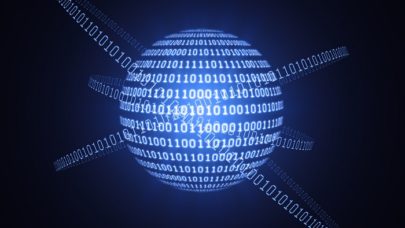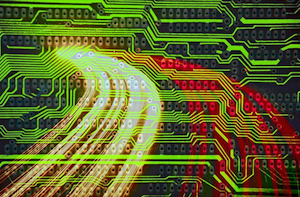
White House Scientific Integrity Report Addresses AI and ML Ethics
January 26, 2022
Earlier this month, the White House Office of Science and Technology Policy (OSTP) Scientific Integrity Task Force released a report titled “Protecting the In Read more…

House Bill Seeks Study on Quantum Computing, Identifying Benefits, Supply Chain Risks
May 27, 2020
New legislation under consideration (H.R.6919, Advancing Quantum Computing Act) requests that the Secretary of Commerce conduct a comprehensive study on quantum computing to assess the benefits of the technology for American competitiveness as well as identify supply chain risks. Read more…

Is US Falling Behind in Supercomputing and Exascale?
January 29, 2015
Few dispute the importance of supercomputing to U.S. competitiveness. The argument is around whether current government efforts – primarily through the Advanc Read more…

House Bill Takes Aim at Exascale
September 10, 2014
The House of Representatives passed an exascale computing support bill Monday highlighting once again the link between next-generation HPC and national compe Read more…

America COMPETES Act Reauthorization Hearing
November 11, 2013
On Wednesday, November 6, 2013, the US Senate Committee on Commerce, Science, and Transportation held a hearing to explore the reauthorization of the America CO Read more…

The Show Goes On…
October 10, 2013
SC13, the annual Supercomputing Conference, is set to take place next month, November 17-22, in Denver, Colorado. Because the annual event draws much of its att Read more…

Maui High Performance Computing Center Plans Solar Farm
September 24, 2013
The Maui High Performance Computing Center is eager to proceed with the Maui Solar Initiative, since it was determined that the 1.5-megawatt solar farm would not significantly impact the environment. Read more…

Supercomputing Enables Climate Time Machine
September 23, 2013
Climate scientists use DOE supercomputers to provide independent confirmation of global land warming since 1901 – further evidence of anthropogenic global climate change. Project shows "predictions" not only possible, but also highly accurate... Read more…

- Click Here for More Headlines

Whitepaper
Why IT Must Have an Influential Role in Strategic Decisions About Sustainability
In this era, expansion in digital infrastructure capacity is inevitable. Parallel to this, climate change consciousness is also rising, making sustainability a mandatory part of the organization’s functioning. As computing workloads such as AI and HPC continue to surge, so does the energy consumption, posing environmental woes. IT departments within organizations have a crucial role in combating this challenge. They can significantly drive sustainable practices by influencing newer technologies and process adoption that aid in mitigating the effects of climate change.
While buying more sustainable IT solutions is an option, partnering with IT solutions providers, such and Lenovo and Intel, who are committed to sustainability and aiding customers in executing sustainability strategies is likely to be more impactful.
Learn how Lenovo and Intel, through their partnership, are strongly positioned to address this need with their innovations driving energy efficiency and environmental stewardship.
Download Now
Sponsored by Lenovo
Whitepaper
How Direct Liquid Cooling Improves Data Center Energy Efficiency
Data centers are experiencing increasing power consumption, space constraints and cooling demands due to the unprecedented computing power required by today’s chips and servers. HVAC cooling systems consume approximately 40% of a data center’s electricity. These systems traditionally use air conditioning, air handling and fans to cool the data center facility and IT equipment, ultimately resulting in high energy consumption and high carbon emissions. Data centers are moving to direct liquid cooled (DLC) systems to improve cooling efficiency thus lowering their PUE, operating expenses (OPEX) and carbon footprint.
This paper describes how CoolIT Systems (CoolIT) meets the need for improved energy efficiency in data centers and includes case studies that show how CoolIT’s DLC solutions improve energy efficiency, increase rack density, lower OPEX, and enable sustainability programs. CoolIT is the global market and innovation leader in scalable DLC solutions for the world’s most demanding computing environments. CoolIT’s end-to-end solutions meet the rising demand in cooling and the rising demand for energy efficiency.
Download Now
Sponsored by CoolIT
Advanced Scale Career Development & Workforce Enhancement Center
Featured Advanced Scale Jobs:
HPCwire Resource Library
HPCwire Product Showcase
© 2024 HPCwire. All Rights Reserved. A Tabor Communications Publication
HPCwire is a registered trademark of Tabor Communications, Inc. Use of this site is governed by our Terms of Use and Privacy Policy.
Reproduction in whole or in part in any form or medium without express written permission of Tabor Communications, Inc. is prohibited.

























